Writing Teaching Resources
Teaching writing strategies and the writing process this school year? Explore a comprehensive collection of teacher resources for elementary and middle school ELA teachers — all created by teachers!
Stocked with graphic organizers, writing prompts, templates, worksheets and so much more, this collection of printable and digital activities is designed to help you as you help your students become more effective communicators and unleash their creativity and imagination.
Save time on lesson planning with resources that have been through a careful review process by an expert member of our teacher team to ensure they're ready for your classroom and your students!
Are you looking for tips and tricks to add to your teacher toolkit this school year? Read on for a primer from our teacher team, including engaging activities for teaching writing in elementary and middle school and a look at some of the different writing strategies your students will need to learn.
11 Writing Strategies Kids Should Know by the End of Middle School
We can't talk about teaching kids to write without talking about the different writing strategies that can help them do just that!
When it comes to teaching our students to become confident writers who articulate their ideas effectively, here are some of the strategies our teacher team prioritizes:
1. Brainstorming
Brainstorming is something we often do in the classroom, and it's a crucial part of learning to generate the ideas that will drive students' writing as they progress through their educational journey. Kids should know how to create a list of potential topics or points related to a particular writing assignment.
With younger students, this is often done as a whole group by writing ideas and points on chart paper. In upper grades, students transition over to using text-based materials to generate ideas and talking points.
2. Outlining
Before diving directly into any assignment, our students should be able to create a structured framework or outline. Teaching students how to create this outline will help them organize their thoughts and arguments for penning their essays, reports and research papers.

3. Using Graphic Organizers
Technically graphic organizers are classroom tools, so you may not think of their use as a writing strategy per se. However, learning to use these tools is another means of providing kids with the tools they need to organize their ideas and information before they sit down to write.
These organizers are particularly useful for expository writing — students can use them to outline main ideas, supporting details, and transitions.
Students can also take advantage of story maps when they are working on narrative writing to plot the key elements of a story, such as characters, setting, conflict, rising action, climax and resolution.
Graphic organizers such as the OREO strategy and hamburger paragraph are also great tools for students to use when working with opinion and persuasive texts.
4. Freewriting
Writer's block is the enemy of creativity, and it can easily frustrate young students who don't know where to begin.
When students freewrite, they write continuously without worrying about grammar or punctuation. This writing strategy can be extremely freeing — hence the name! — and helps frustrated writers move past that writer's block, generating fresh ideas.

5. Peer Editing
Learning to review and provide constructive feedback on each other's work is a great writing strategy to employ in your classroom to help students improve their writing quality and enhance their editing skills.
The strategy allows your students to learn from one another, and it arms them with an important tool they can use well into the future — calling on peers to provide a critical eye to a piece of writing.
6. Using Sensory Language
Working on descriptive writing? With this writing strategy, students engage the reader's senses through vivid and sensory language to create a more immersive experience.
7. Including Transitions and Connectives
As students become more proficient in the writing process, learning to use transitional words and phrases allows them to create smooth transitions between sentences and paragraphs. This strategy makes their writing more coherent and polished.
8. Incorporating Evidence
In persuasive, opinion, and expository writing, students are taught to support their claims with evidence and examples to strengthen their arguments.
It takes some practice to train your students to use evidence in their writing, so it's often a good idea to start with something simple, like the R.A.C.E.S. strategy.
9. Crafting a Thesis Statement
In expository, opinion, and persuasive writing, crafting clear and concise thesis statements that summarize the main point or argument of their essay helps students be more focused and organized in their writing. This strategy can also have the effect of empowering students to express their ideas confidently and persuasively.
10. Incorporating Introductions and Conclusions
With this strategy, students practice crafting effective introductions and conclusions that grab the reader's attention and leave a lasting impression.
11. Following a Revision Checklist
Teaching your students to use a revision checklist is a strategy that will help them be more self-reflective, evaluating their own writing against the checklist criteria and becoming more aware of their strengths and weaknesses.

- Plus Plan
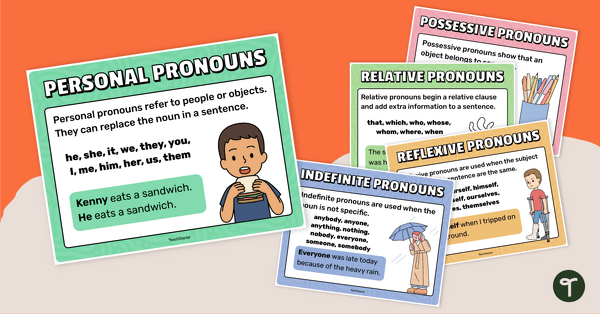
Pronouns Anchor Charts
Display this set of 7 pronouns anchor charts in your classroom to remind your students of the most common types of pronouns and their uses.
- Plus Plan
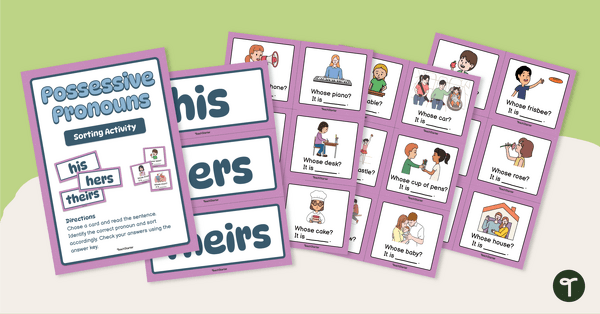
Possessive Pronouns Sorting Activity
Use this sorting activity in your grammar lessons to teach your students about possessive pronouns.
- Plus Plan
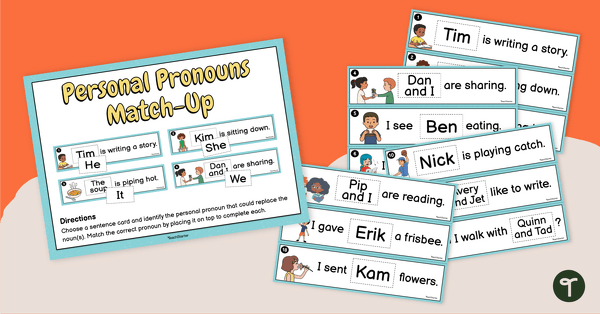
Personal Pronouns Matching Game
Familiarize your students with some of the most common personal pronouns using this fun matching game perfect for group work.
- Plus Plan
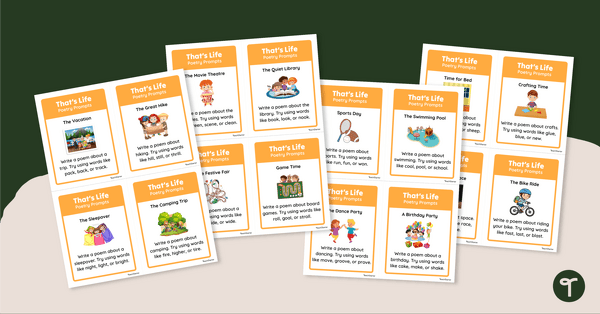
Life Event Poetry Prompt Task Cards
Use these poetry prompts to help your students write simple poems about their life experiences.
- Plus Plan
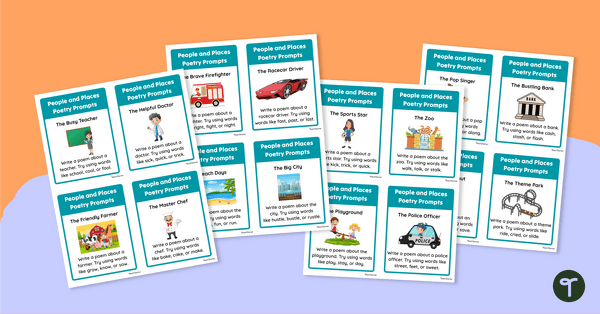
People and Places Poetry Prompt Task Cards
Use these writing prompts for poetry to help your students write simple poems about people and places.
- Plus Plan
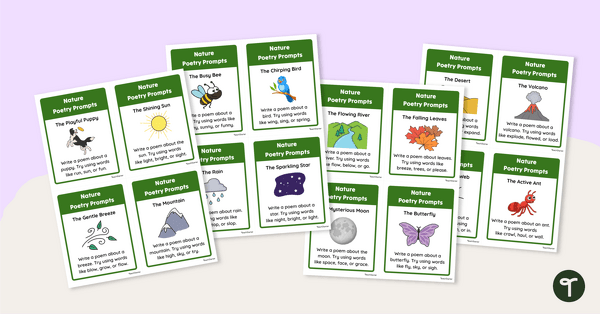
Nature Poetry Prompt Task Cards
Use these poetry writing prompts to help your students write simple poems about nature.
- Plus Plan
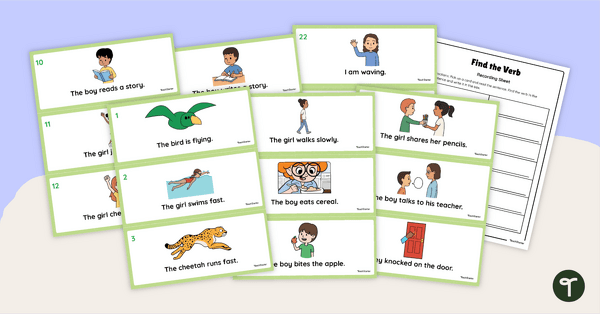
Find the Verb Task Cards
Help students recognize verbs in sentences with this set of Find the Verb task cards and recording sheet.
- Plus Plan
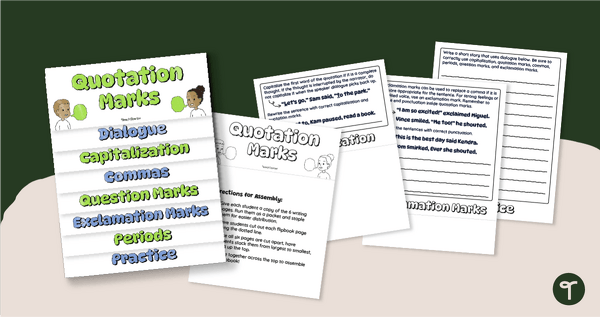
Using Quotation Marks Flipbook
Explore punctuation rules surrounding quotation marks with a printable Quotation Marks Flipbook template.
- Plus Plan
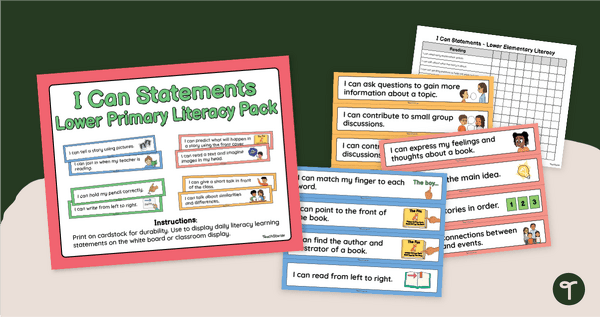
'I Can' Statement Cards - Primary Literacy Display
Highlight your classroom learning targets with printable 'I Can' Statements for lower primary students.
- Plus Plan
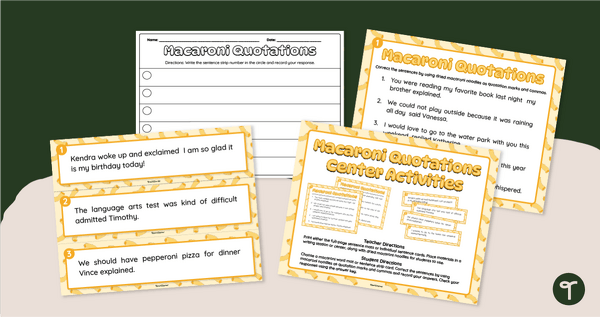
Macaroni Quotation Marks Center Activity
Practice using quotation marks in sentences with an engaging Macaroni Noodle Quotation Marks Writing Center!
- Plus Plan
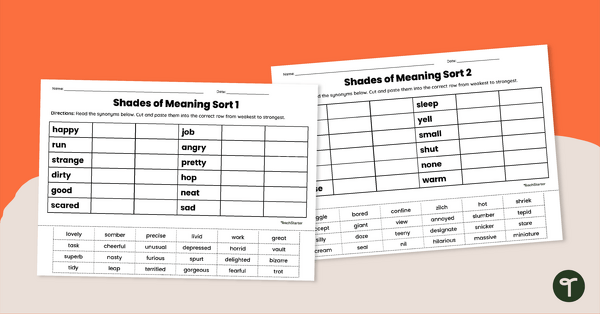
Cut and Paste Shades of Meaning Verb Sort
Engage your students in exploring subtle differences between verbs with this set of two cut and paste worksheets.
- Plus Plan
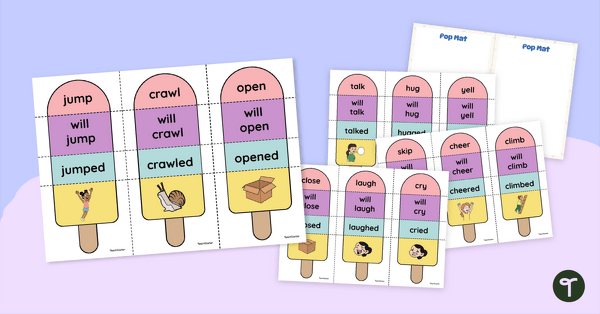
Verb Tense Puzzle Pop Activity
Grow your students' knowledge of the tense of verbs with this puzzle pop matching activity.
- Plus Plan
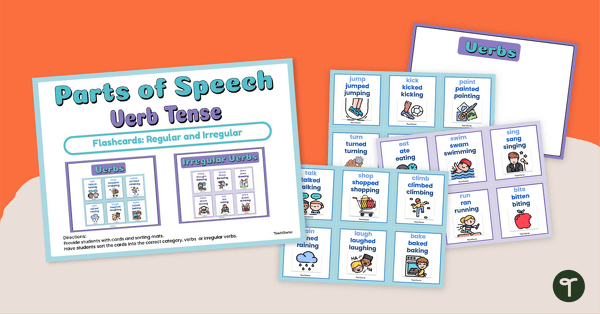
Verb Tense Regular and Irregular Sorting Activity
Help students understand the difference between a regular and irregular verb tense group with this hands-on verb sorting activity.
- Plus Plan
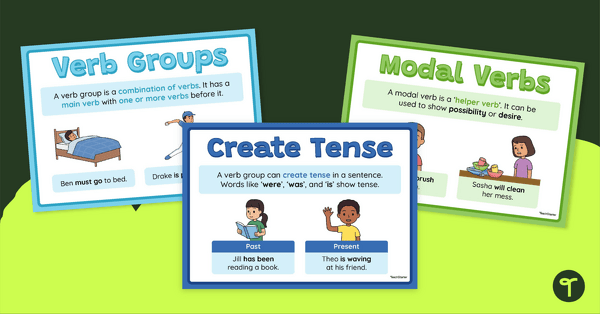
Verb Group Posters
Guide your students to be better writers with this verb group poster set to display in your classroom.
- Plus Plan
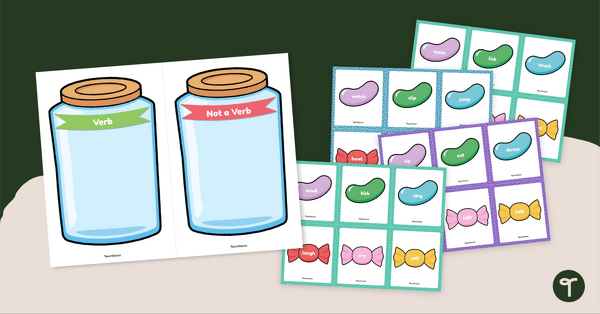
Verb or Not Sorting Activity
Allow students the opportunity to show their verb awareness with this verb or not a verb candy sorting activity.
- Plus Plan
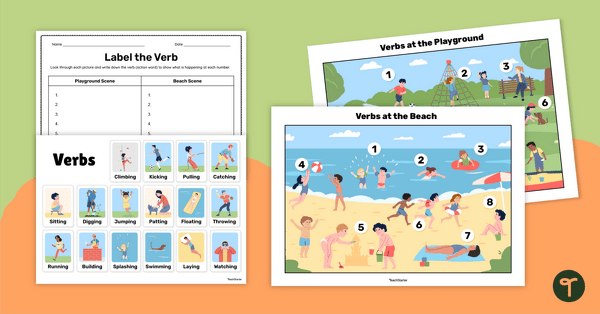
Verbs in Pictures Activity
Explore verbs in action using these scenes at the playground and beach.
- Free Plan
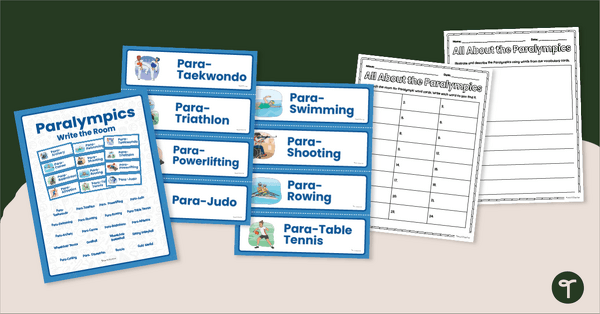
Write the Room - Paralympic Games Writing Center
Teach your students the vocabulary associated with the Paralympic Games with this interactive Write the Room activity.
- Free Plan
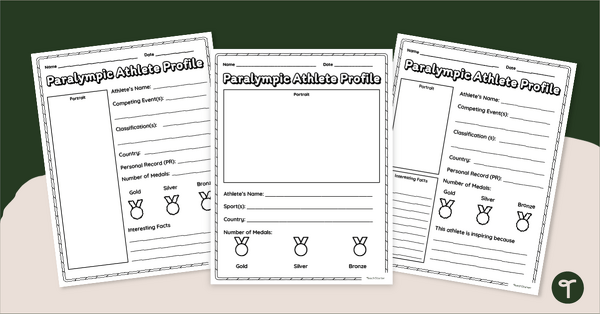
Paralympic Athlete Profile Template
Get your students excited about their favorite Paralympic competitors with our Athlete Profile Template.
- Plus Plan
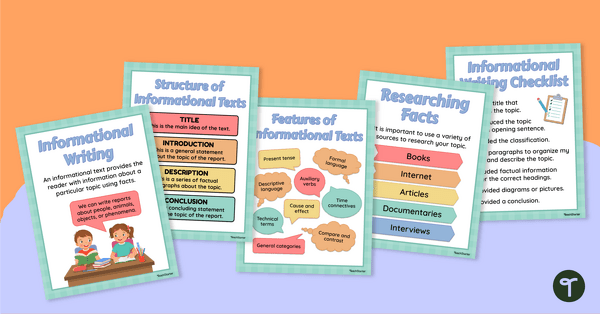
Informational Text Anchor Charts
Display this set of 5 informational text anchor charts in your classroom during your informational writing unit.
- Plus Plan
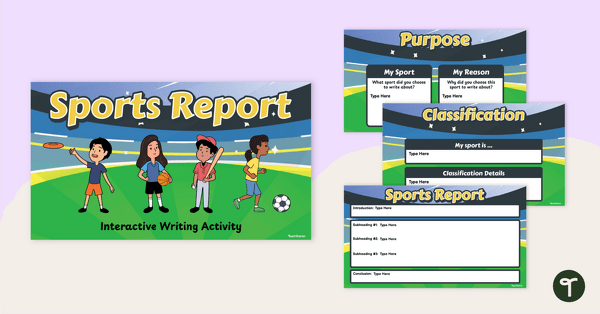
Sports – Digital Report Writing Activity
Use this digital writing scaffold to model the purpose and structural elements of informational writing.
- Plus Plan
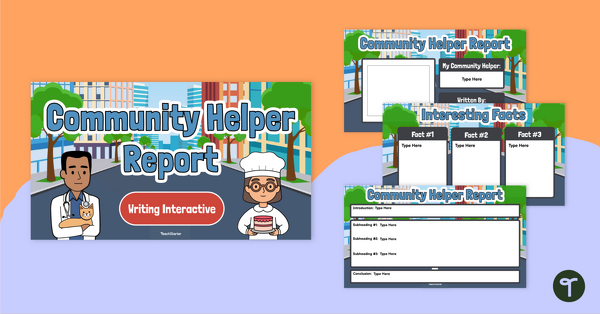
Community Helper – Digital Report Writing Activity
Use this community helpers activity to model the purpose and structural elements of informational texts.
- Plus Plan
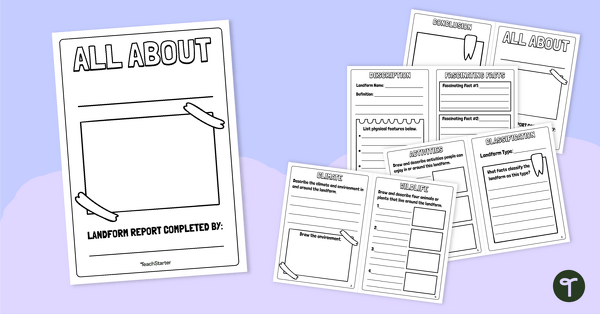
Landform Report – Mini Book Template
Use this expository writing prompt when teaching expository writing to elementary students.
- Free Plan
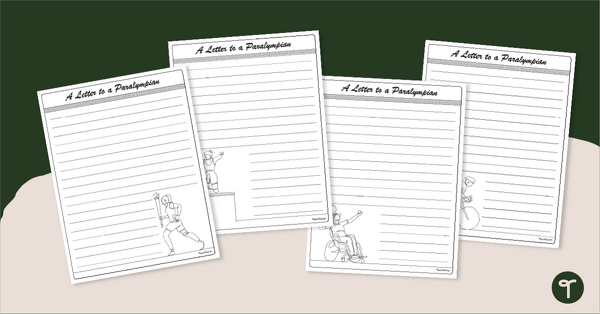
Letter to a Paralympian - Lined Paper Pack
Write a letter to a Paralympian using our printable letter-writing templates.
- Plus Plan
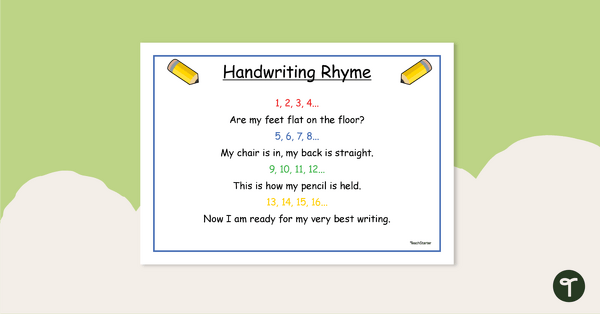
Handwriting Rhyme Poster
Use this handwriting rhyme to help your students prepare themselves for a handwriting lesson.
- Plus Plan
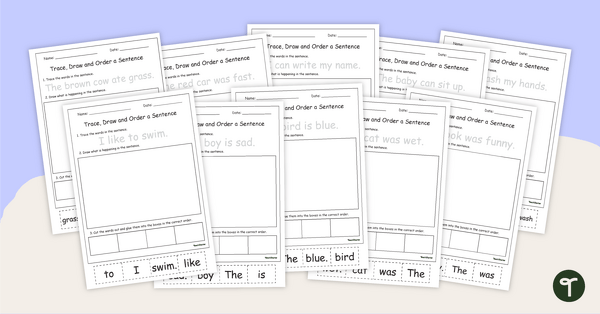
Trace, Draw and Order Sentences Worksheets
Use this set of sentence cut-and-paste worksheets to help your students build simple sentences.
- Plus Plan
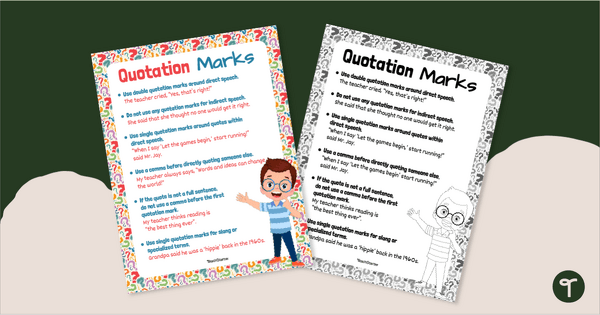
Quotation Marks Anchor Chart
Display the rules for using speech marks using a printable Quotation Marks Anchor Chart.
- Plus Plan
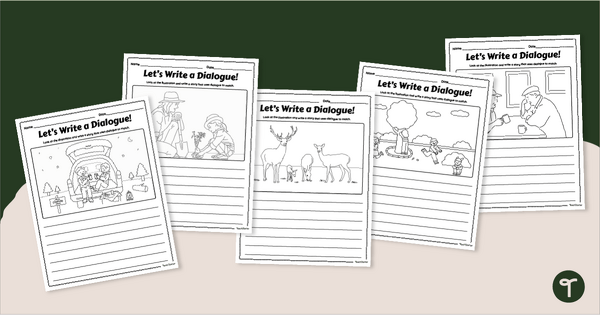
Quotations, Quotations - Picture Dialogue Prompts
Practice writing using correct dialogue punctuation with a pack of ten picture-based Dialogue Prompt worksheets.
- Plus Plan
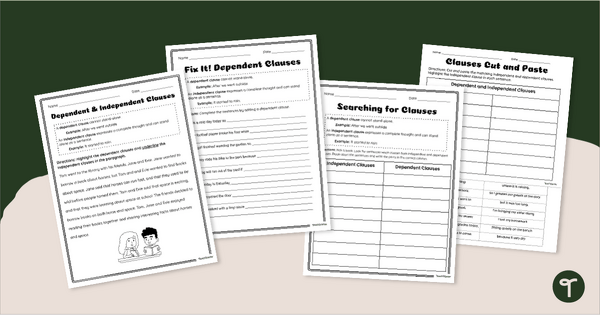
Independent and Dependent Clauses - Worksheet Pack
Introduce the concept of independent and dependent clauses with a set of printable sentence structure worksheets.
- Plus Plan
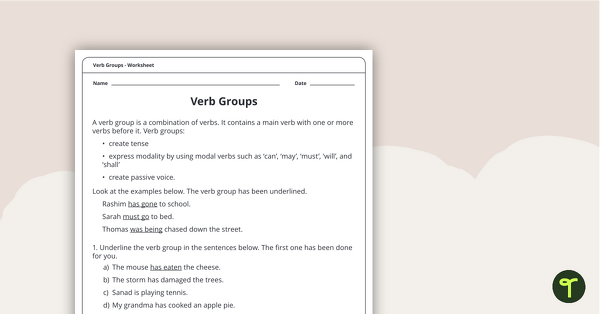
Verb Group Worksheet
Explore verb groups and the words that surround verbs in sentences with this set of verb group worksheets.
- Plus Plan
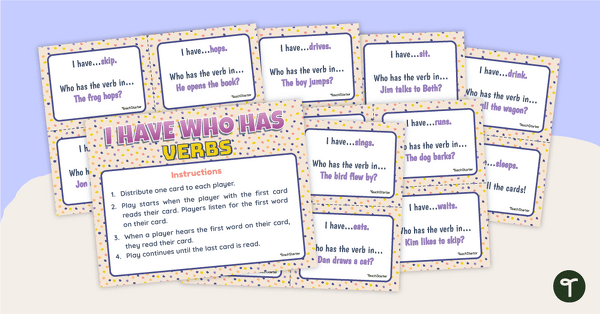
I Have, Who Has? Verb Card Game
Play a fun and exciting game that is great for students who are now learning how to identify action verbs.
- Plus Plan
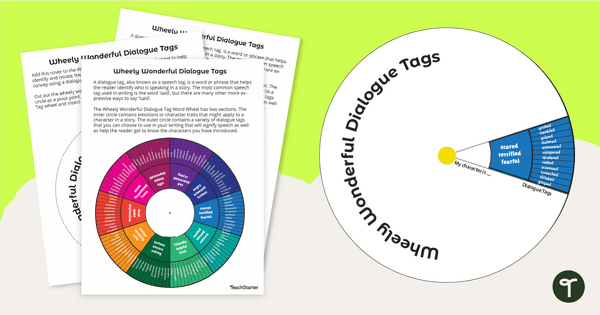
'Wheely' Wonderful Dialogue Tags Spinner
Spice up your students' writings and help them choose better dialogue tags with a ‘Wheely’ Wonderful Dialogue Tag Spinner.
- Plus Plan
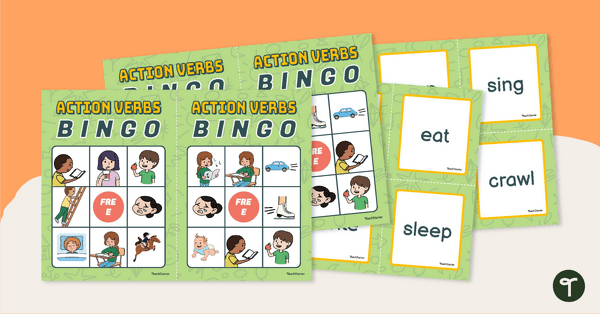
Action Verbs Bingo
Identify action verbs with this set of 20 BINGO cards.